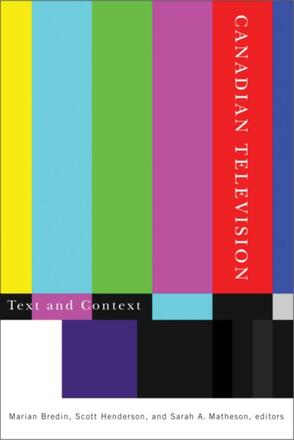
Canadian Television
Text and Context
La description
Canadian Television: Text and Context explores the creation and circulation of entertainment television in Canada from the interdisciplinary perspective of television studies. Each chapter connects arguments about particular texts of Canadian television to critical analysis of the wider cultural, social, and economic contexts in which they are created. The book surveys the commercial and technological imperatives of the Canadian television industry, the shifting role of the CBC as Canada’s public broadcaster, the dynamics of Canada’s multicultural and multiracial audiences, and the function of television’s “star system. ” Foreword by The Globe and Mail’s television critic, John Doyle.
Reviews
The compelling and wide-ranging essays in this collection attest to the strength of television studies in Canada even–or especially–at a moment when both the nation and the medium of television have become destabilized critical categories. A welcome addition to the field of media studies in Canada
- Zoë Druick, Simon Fraser University, co-editor of <i>Programming Reality: Perspectives on English-Canadian Television</i> (WLU Press, 2006)
While the digital age transforms all media and globalization erodes national boundaries, television and its domestic contexts are still perceived as serving some form of national interest. Canadian Television: Text and Context celebrates English-Canadian television within this nexus of concerns, asking how our TV texts and the issues they raise provide Canadians with a "collective working through" of our shared realities. Crossing disciplines and genres in rich explorations of forms and practices, this impressive collection signals loud and clear the depth and diversity with which Canadian television studies has arrived.
- Christine Ramsay, University of Regina, editor of <i>Making It Like a Man: Canadian Masculinities in Practice</i> (WLU Press, 2011)